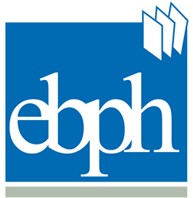A sanitary cooperation project in Gorontalo province, Indonesia. Methodology to identifying critical areas, possible strengthening and improving of the health system
DOI:
https://doi.org/10.2427/5666Keywords:
Indonesia health system, Gorontalo health system, Italian sanitary cooperation, ealth system survey methodology, NDP ART-GOLD IndonesiaAbstract
Following an agreement between UNDP (United Nations Development Program) and ANAAO Assomed
(Italian Hospital Doctors Association), a team of ANAAO conducted a survey of the health system of the
Province of Gorontalo (Sulawesi – Indonesia). The survey was carried out following WHO methodology. This
approach provided a comprehensive assessment which cut across WHO’s six technical building blocks of the
health system: 1) Service delivery, 2) Health workforce, 3) Health information system, 4) Medical products
(drugs etc.) vaccines and technologies, 5) Health financing, 6) Leadership and governance.
The team visited the hospitals and a significant number of peripheral health structures within the Province.
Several meetings were conducted with the staff from both local political and institutions, with the aim of
identifying critical areas, that would inform the development of a cooperation project to strengthen and
improve the local health system.
At the end of the survey, a workshop was conducted with the Governor of Gorontalo and representatives of
the local institutions to identify possible areas of cooperation between ANAAO Assomed and the Gorontalo
Province.
The initial proposals that were developed concerned short, medium and long term projects, identifying areas
where immediate actions were required: i) Basic organization of a health system (collection of data and
their use, budget, economical sector) and primary health care: ii) Public hygiene and preventive medicine,
iii) Gynaecology, to help identify at risk pregnancies and reduce the known risk of maternal mortality, iv)
Surgery, with regards to the re-organization of the surgical sector, training for specialized nurses and basic
surgical training at the territorial health posts, v) Intensive care units and emergency medicine.





